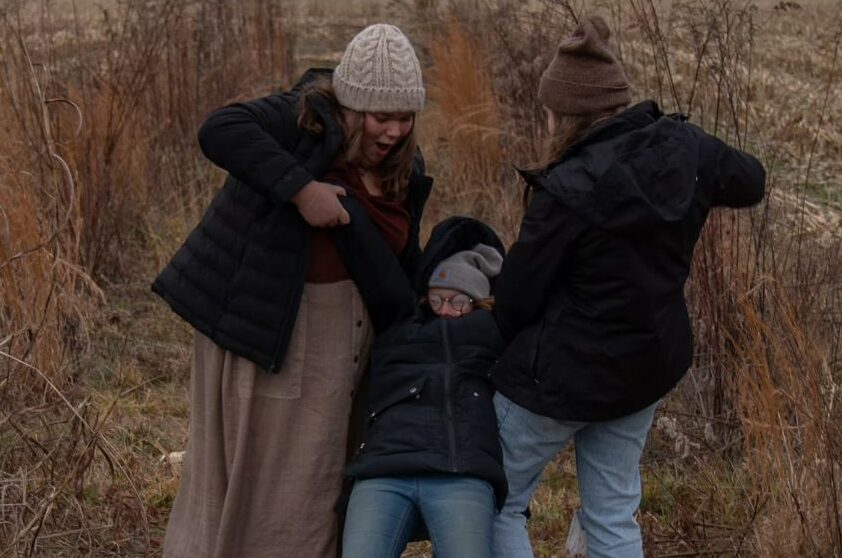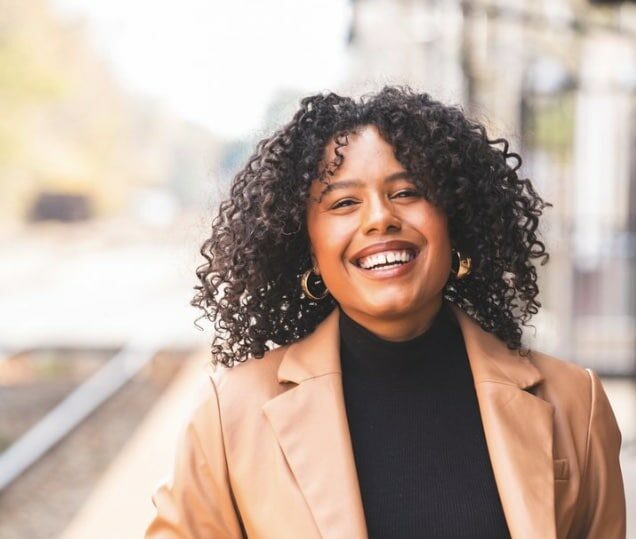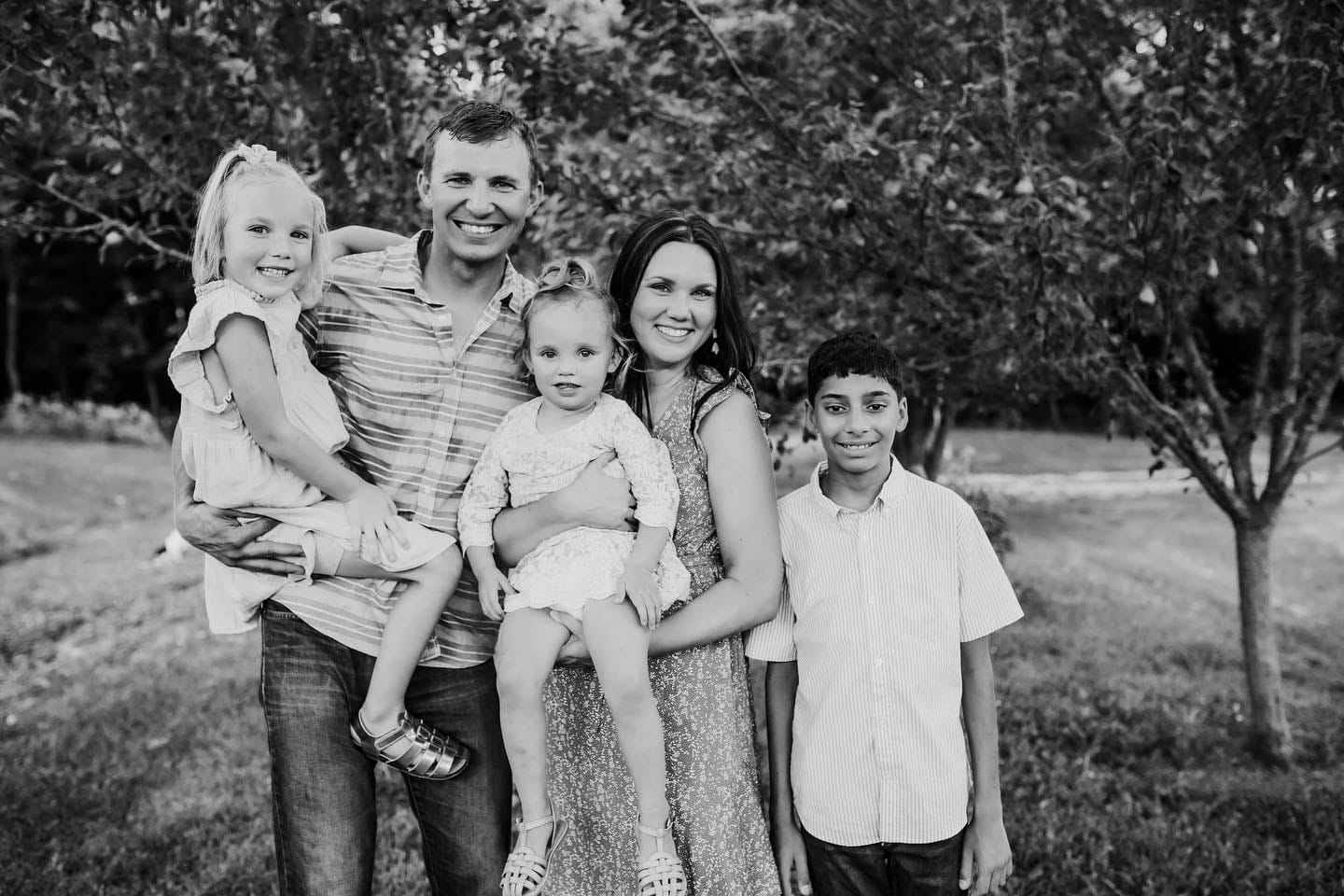Written by Manda Carpenter
We were fostering one teenager at the time, in a very small two-bedroom apartment in Chicago. We were very much still in the honeymoon phase, and things were going much better than we had expected. We had yet to meet the person described in his file. D was kind, easygoing, and incredibly goofy. All of which they failed to mention.
A couple of months into this placement, I received a phone call. Because foster care is a world of constant contact from caseworkers, social workers, GALs, CASAs, relatives and more, I always answered even if it was an unknown number.
On this random Tuesday, around 2:30pm, I was informed that our foster son’s younger two brothers would need to leave their current foster home and they were asking if they could be placed into our care.
My heart started racing and my mind began running wild.
We only have one extra bedroom. We’ll need two more beds. Why hadn’t they been placed together initially? Would D welcome his brothers or would this create problems? We’ll need to talk with him about this. Do they have any allergies? Do they have IEPs? This won’t be a big adjustment. We have to keep siblings together. If we say no, then what will happen?
Little did this social worker know that we had just found out that our offer on a home was accepted, and it was built for a family as large as three kids. I couldn’t help but wonder if this was all meant to be. But I told her I would get back to her in a couple of hours since I didn’t want to commit without asking my husband first. (Wise partner move.)
As I recapped the phone call to my husband, Eric, he took a deep breath and processed the idea internally. It felt like a lot because going from zero kids to having a teenage boy was a massive life change–and now we were considering adding two more! When he was ready to share how he felt about it, I anticipated hearing no, but what he said instead surprised me.
He reminded me about the trip to Florida that we’d just returned home from…
“Remember how the flight attendants came up and reminded us that we need to put our own oxygen masks on before we assist D with his?”
“Yeah…” I replied, not fully knowing where he was going with this.
“I think we need to put our oxygen masks on first before we put oxygen masks on two more boys.” he said confidently. “So it’s a yes for me, if they can give us a little bit of time…”
Immediately, I felt relieved. He was absolutely right. My heart racing and mind running wild a few minutes prior had been my anxiety rearing its head. As usual, my body was signaling something even though my mind didn’t want to listen.
We first went and talked to our foster son and made sure he was on board with his two brothers coming to live with us in the near future. Then, my husband and I came up with a plan that brought peace to both of us. We needed 30 days. In 30 days, we could move out of our apartment and into the new home we’d just bought and get somewhat settled. We could prepare our hearts and physical space to adapt to a family of five. It would be fast, but it would be better than adding two new children into our lives with a couple of hours notice and a move underway. We proposed this plan on a call back to the social worker, who immediately affirmed the plan and said she would place the boys into a wonderful respite home for one month.
That was three years ago.
Today, we don’t live in Chicago and we don’t have those three brothers in our care. We moved across the country to Los Angeles, and our boys transitioned to their forever family before we left Chicago. We had them for 24 months, and we are still in frequent contact. They will forever be part of our family even though they have a new one.
There is no doubt in my mind that if we hadn’t asked for 30 days to prepare, we wouldn’t have been able to sustain life with three boys ages 5, 9, and 13. That proactive measure of self-care paid off in the peace we gained and posture we took as we created a healthy, happy family for them and for ourselves.
Self-care is putting your oxygen mask on, especially before you try to help put someone else’s on. Self-care is really helpful to parents; and I would argue that it’s not optional for foster parents. (At least those who want to play the long game.) Prior to accepting a new placement, amidst transitioning a child out of your home, through the grief and in the day to day trauma – self-care is what sustains and restores when we are at risk of running ragged.
Self-care is not a one size fits all because it’s how you care for you, and you are different from me. So instead of telling you how to care for yourself, I want to encourage you to ask yourself a few questions:
1. Imagine a healthy, healed version of yourself right now. How is it different from you right now?
2. Assess: Are you getting enough sleep?
Water? Movement? Laughter? Time with friends? Downtime?
3. What do you need most right now?
A nap? A helping hand? A meal? A moment to cry?
4. What would make your day to day life more sustainable?
Scheduling grocery pick-up? Having your kids contribute to chores around the house?
5. What brings out goodness in you? (i.e.: backyard bbq’s, karaoke, yoga, journaling, nights out with friends, etc.) And how can you ensure more of that?
After we develop habits of caring for ourselves, we no longer live in survival mode. This is when we can take it a layer deeper and introduce rhythms of soul care. Just like hurt people hurt people, healed people heal people. Soul care is how we heal. It differs from self-care because it addresses the deepest part of you that no one else can see. Things such as: envy, lust, pride, unawareness, and more –but it requires us to get radically honest with ourselves.
In my new book, Soul Care to Save Your Life, I do just that – I get radically honest about my life and the mistakes I’ve made, but I don’t leave you there. I spill the tea on 15 practices of soul care I’ve learned along the path towards growth and healing, and I invite you to try them out as you embark on your own journey of soul care.



